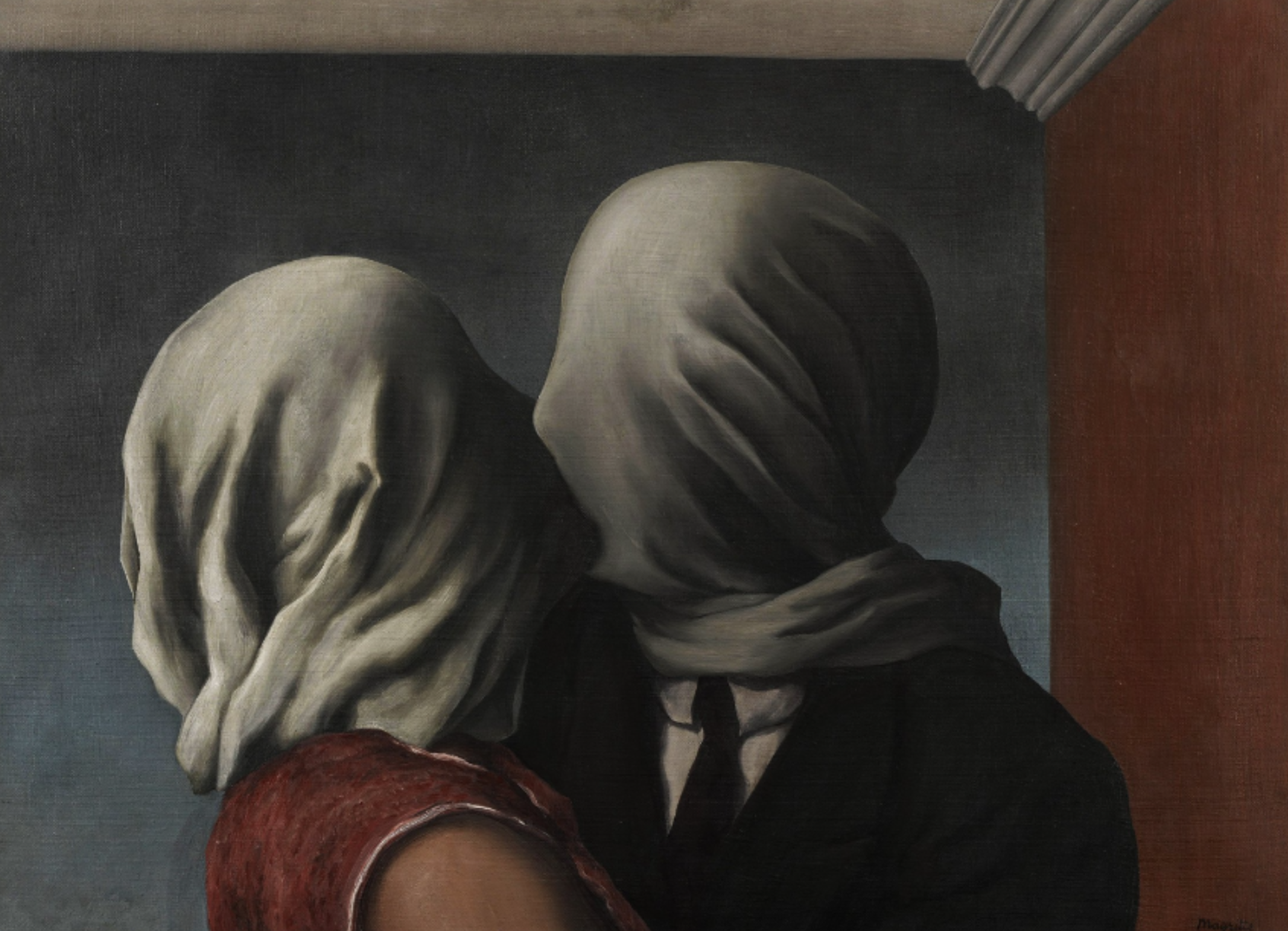the ither.
ither (noun): i + others = a being existing through others
As ‘likes’ come to life, our need for external validation matures. Our dependence on others to affirm a sense of belonging and exist as a unique being paradoxically grows through an addiction to an anonymous mass's validation on social media. “The others, alas! It is us!” claims George Bernanos in his Letter to Palma in 1954. Indeed, if I exist only because a conscience perceives me, and if ‘others’ are subjects possessing a conscience, then my existence depends on others. What Bernanos expresses by his exclamation is none other than the idea that, due to our existential dependence on others, we become ‘the other’ ourselves, thus reducing us to the state of ‘ither’ (existence of the ‘i’ only through ‘others’).
“The Lovers” - René Magritte, 1928
IN-DEPTH: In what ways are ‘others’ our source of existence?
Others become an object of serious philosophical questioning during the 19th century when Hegel, in his “Phenomenology of the Spirit”, illustrates the process of self-awareness through a struggle for recognition. Hegel claims:
“I am a being for itself which is for itself only through another. Therefore the Other penetrates me to the heart. I cannot doubt him without doubting myself, since self-consciousness is real only so far as it recognises itself in another”.
If that sentence just gave you three variations of brain cancer, no need to worry. Put simply, what Hegel means is that we cannot be self-aware without being first aware of others. To be conscious (i.e. aware) of an object, we must perceive it. In this context, perception refers to the way we regard, understand and interpret objects (this is not restricted to sight). We begin by perceiving others and gain consciousness of them - this way, others come into existence. However, Hegel claims that our consciousness is always “consciousness of something” (i.e. intentionality) and cannot direct itself within - thus, we cannot gain consciousness of ourselves alone, we need others to perceive us! By illustrating the dependence of the individual on the human community, Hegel encourages the creation of the ither - our entire existence relies on others’ perception of us.
If that thought makes you feel completely co-dependent, dont panic just yet - it gets worse. As Sartre underlined in “Being and Nothingness”:
“others are an indispensable mediator between me and myself”.
Therefore, self-awareness is possible - but Others are a necessary component to achieve it… A simple way to represent this is through the idea of language and the cartesian cogito. You are probably familiar with the phrase “I think therefore I am”; but is thought really dissociable from language? If we agree it is not, then we can establish that we cannot think, and therefore be, without language. How do we acquire language? Our parents at home, our professors at school, etc. - put simply, Others are the key to our knowledge of language. If it is thanks to Others that we learn to speak and therefore to think and exist according to the cartesian cogito, then once again our existence depends on Others.
